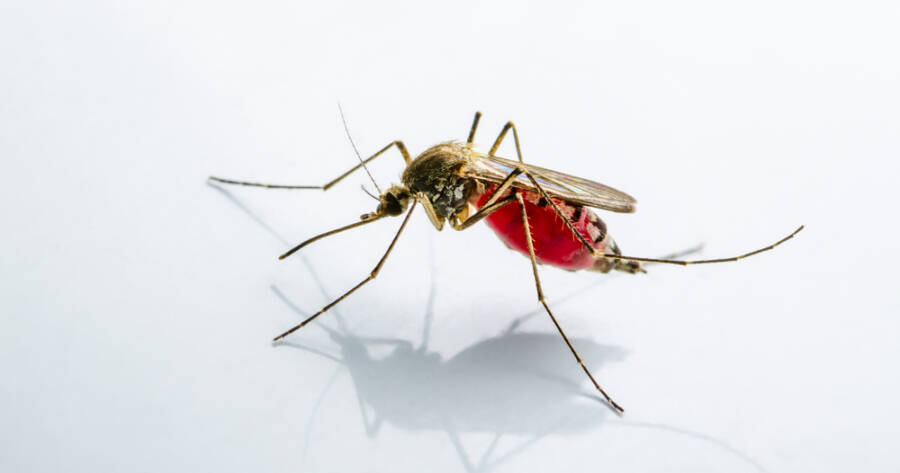West Nile virus is a disease that can spread to humans through the bite of infected mosquitoes. It originated in Africa but has since spread to many parts of the world, including North America. While most people who get the virus will not experience any symptoms, it can cause serious health problems in rare cases. If you’re concerned about the West Nile virus, you can find out how it spreads as well as prevention tactics to remain safe during mosquito season.
How Does West Nile Virus Spread?
West Nile virus spreads through mosquitoes, specifically those that are infected with the virus. When a mosquito bites an infected bird, it can pick up the virus and then spread it to other animals or humans through a bite. While most mosquitoes are not carriers, it only takes one bite from an infected mosquito to transmit the virus. Mosquitoes become more active during warmer months, making late spring through early fall the peak season for West Nile virus transmission.
Unlike contagious illnesses such as mpox, West Nile cannot spread from one person to another through casual contact. You will not catch it by touching someone who is infected. However, there have been rare cases where West Nile virus spread through blood transfusions, organ transplants, and even during pregnancy from mother to baby. For most people, though, avoiding mosquito bites is the main concern.
Symptoms of West Nile Virus
Most people who get West Nile virus will not show any symptoms. In fact, about eight out of every ten people with the virus feel completely fine and never even know they were infected. For those who do experience symptoms, they usually appear within 3 to 14 days after the mosquito bite.
The most common symptoms are mild and can include fever, headache, and body aches. Some people may also have a rash or swollen lymph nodes. These symptoms often go away on their own after a few days. Rest and drinking plenty of fluids can help you recover.
In rare cases, West Nile virus can lead to more serious conditions. These include encephalitis, which is swelling of the brain, and meningitis, which is swelling of the membranes around the brain and spinal cord. People who develop these conditions may experience severe headaches, high fever, stiff neck, confusion, seizures, or muscle weakness. If someone has these symptoms, it’s important to seek medical attention right away.
Who Is at Risk for Severe Illness?
Getting infected with West Nile virus almost seems like a game of roulette, in that only a small subset of those infected wind up showing symptoms. Random chance plays a role, but there’s clear evidence that some people are at a higher risk for severe illness. Older adults, especially those over 60, are more likely to experience serious complications. People with weakened immune systems, such as those with certain medical conditions or those taking immune-suppressing medications, are also at higher risk.
Even though the chances of developing severe symptoms are low, it’s still important for everyone to protect themselves from mosquito bites. By reducing exposure to mosquitoes, you lower your chances of getting the virus, whether you are in a high-risk group or not.
How Is West Nile Virus Treated?
There is no specific treatment for West Nile virus. Since most cases are mild, many people recover without medical care. Over-the-counter pain relievers can help reduce fever and relieve body aches. If you have mild symptoms, rest and stay hydrated until you feel better.
For people who develop serious symptoms, such as encephalitis or meningitis, hospitalization may be required. In these cases, treatment focuses on managing the symptoms and providing supportive care, such as intravenous fluids, pain relief, and sometimes breathing support. The earlier severe symptoms are recognized and treated, the better the chances of recovery.
Preventing West Nile Virus
The best way to prevent West Nile virus is to avoid mosquito bites. There are several simple steps you can take to protect yourself, especially during peak mosquito season. Wearing long sleeves and pants when outdoors can help keep mosquitoes from biting. Using insect repellent that contains DEET, picaridin, or oil of lemon eucalyptus is also effective.
Mosquitoes are most active at dawn and dusk, so try to stay indoors during these times. If you need to be outside, take extra precautions to protect yourself. Given that mosquitos are most active during the summertime, when you’re also trying to stay cool, it may be challenging to keep windows and doors closed. If you don’t have air conditioning at home, consider using screens to keep mosquitoes out of your home.
It’s also helpful to reduce the number of mosquitoes in your environment. Mosquitoes lay their eggs in standing water, so regularly emptying items like buckets, flower pots, and bird baths can reduce mosquito breeding. If you have a pond or water feature, consider using a mosquito control product designed for water areas.
Protect Yourself
West Nile virus is a disease that is mostly spread by mosquitoes, and while many people who get it do not feel sick, it can cause serious health problems for some. Knowing how the virus spreads and taking steps to avoid mosquito bites are key to staying safe.
Remember to protect yourself, especially during warmer months when mosquitoes are most active. With simple precautions, you can reduce your risk and enjoy outdoor activities without worry.

